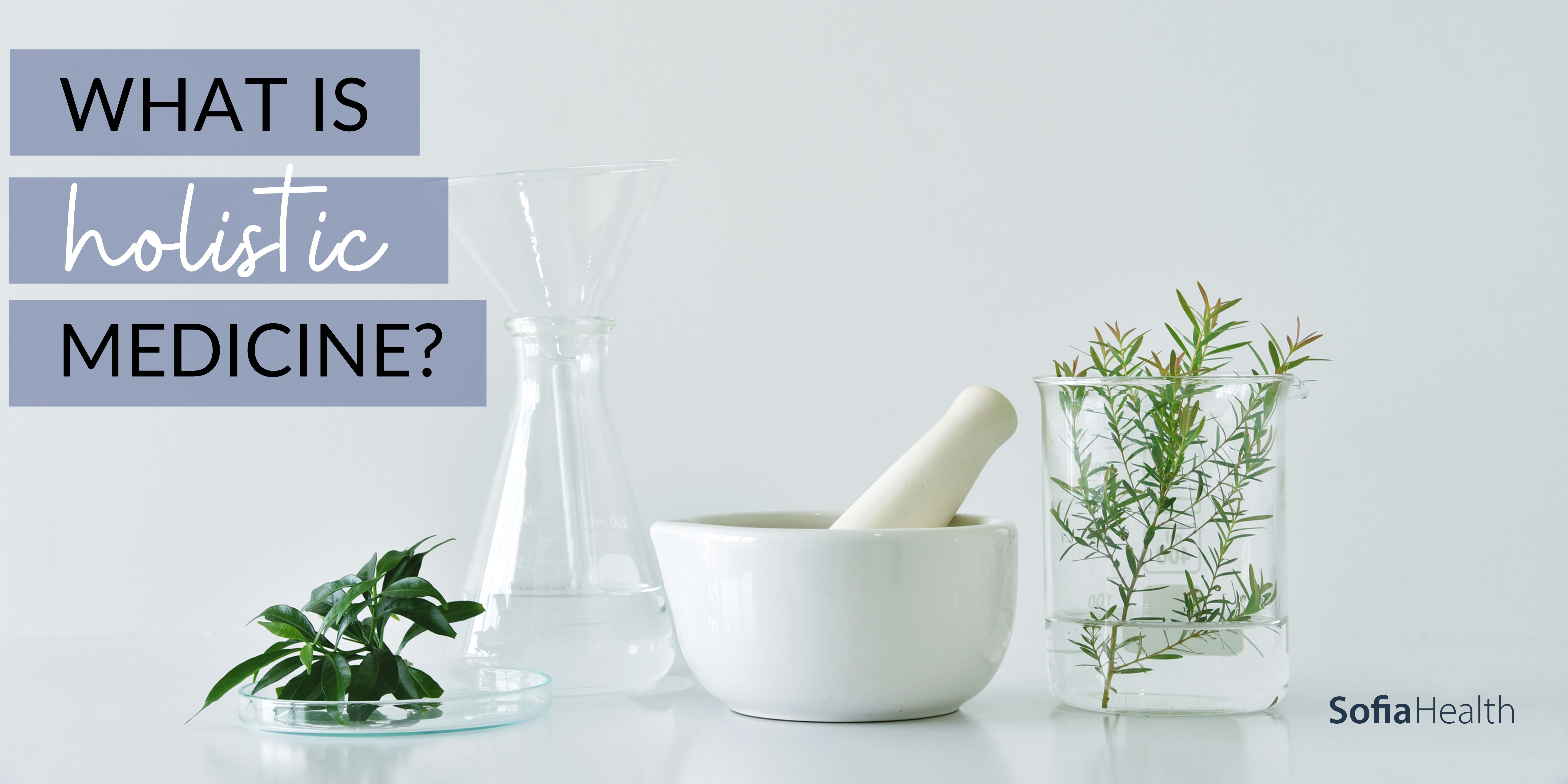Perhaps you've sought acupuncture for your back pain or tried to meditate after feeling overwhelmed by anxiety. If you have — and you would not be alone — you already have an idea of what alternative medicine is.
Table of Contents
What is Alternative Medicine?
How is Alternative Medicine Different?
Common Modalities of Alternative Medicine
What is Alternative Medicine?
"Alternative medicine" is a catch-all term that includes techniques outside the umbrella of traditional Western medicine. Growing numbers of Americans are seeking alternative remedies alone or in concert with their mainstream medical care.
How is Alternative Medicine Different?
Techniques deemed "alternative" have usually not been subjected to double-blind studies in the way that Western drugs can be. This is changing, however, with an increasing number of studies being performed on techniques like reiki and acupuncture (even if results are sometimes mixed). But many techniques considered "alternative" in the West have been employed for hundreds of years in their countries of origin like Japan, Korea, and India.
Alternative Medicine and the Mainstream
Many respected universities and hospitals now have programs in alternative or "complementary" medicine (when alternative methods are blended with traditional ones in ways that enhance their effectiveness or help with their side effects). The increasingly mainstream sense among Western doctors is that if a modality works (to relieve pain, for example), it's worth investigating — particularly since patients are exploring these approaches anyway.
The terms "alternative" and "complementary" are broad and difficult to define. Here, we are going to break down 9 of the common alternative practices.
The Most Popular Alternative Medicines Defined

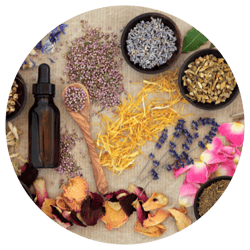
Naturopathic remedies aim to treat the underlying cause of illness, not just symptoms. Naturopathic medicine uses natural remedies to help the body heal itself. Its practitioners, known as Naturopathic Doctors (ND's), are typically trained in four-year programs. Examples of naturopathic remedies include:
- The use of herbal remedies, taken internally (like teas) or externally as ointments;
- Lifestyle changes to reduce and control stress;
- The use of therapeutic touch and physical therapy, like massage and manipulation, to restore balance in the body.


Functional medicine is similar to naturopathic medicine in that it looks at the underlying source and root cause of a disease. However, it is more closely allied to Western medicine and focuses on using a combination of science-based techniques. When considering a patient's ailment, it looks at the individual's overall picture, including genes, environment, and lifestyle (not just the techniques of naturopathy).
According to the Institute for Functional Medicine, a functional medicine approach to depression might involve looking at its several possible causes, which could vary for every individual but might include:
- Nutritional problems, like an omega-3 or Vitamin D deficiency
- Biological issues, like an underactive thyroid
- Medicinal causes, like antibiotic use (affecting the microbiome)
Finding and treating a root cause, rather than just treating symptoms, gives a better chance of preventing recurrences of an ailment or syndrome. In the case of depression, functional medicine might recommend scientifically-backed interventions like increasing movement and exercise, switching to a Mediterranean diet, and taking supplements like fatty acids and magnesium. It can also include typical treatments like therapy and medication.

.png?width=250&name=_blog%20inside%20(2).png)
According to WebMD, holistic medicine "considers the whole person — body, mind, spirit and emotions" in the quest to bring healing. It is similar to functional medicine in that it also looks for root causes for any particular ailment. It insists on a practitioner's emotional and psychological support while patients look to heal themselves. In holistic medicine, patients are ultimately responsible for their own healing, but a practitioner's wholehearted support can aid the process.

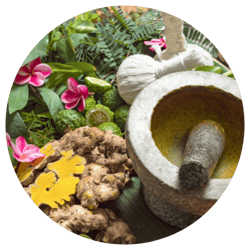
Ayurvedic Medicine is a system of medicine and nutrition grounded in ancient Indian wisdom. Ayurveda translates to "knowledge of life." According to Johns Hopkins, "the concepts of universal interconnectedness, the body's constitution (Prakriti) and life forces (doshas) are the primary basis of ayurvedic medicine."
In Ayurveda, the universal life force manifests as three different energies, or doshas — Vata, pitta, and Kapha. Each dosha has strengths and weaknesses, and different physical and psychological tendencies. Depending on which dosha is judged an individual's main dosha, dietary changes or lifestyle interventions (including movement, strategies for mood regulation, and social interaction) will be recommended.


Traditional Chinese Medicine (TCM) has evolved over thousands of years. In TCM, Qi or energy is the essential life force that runs through all creation. Techniques are geared toward balancing Qi and making sure it is flowing freely so as to keep the body strong and healthy. Balance of energies (like yin and yang) is central to TCM. Its techniques include tai chi (a system of gentle movement to shift stagnant energy), various herbal remedies and tonics, and acupuncture. Acupuncture involves inserting needles into certain meaningful meridian points on the body to improve the circulation of Qi. It is often used not only on its own but to help relieve the side effects of conventional treatments like chemotherapy for cancer, as well as relieve pain for cancer sufferers.


Herbal medicine relies on traditional preparations of herbs to treat ailments. Echinacea is a classic remedy to ward off colds, for example, and ginger helps digestion. One list of common herbal treatments can be found here. A skilled practitioner can give you a more personalized herbal program, of course.

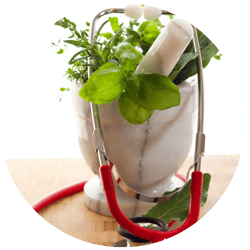
Integrative medicine draws on the best of Western and alternative medicine. It looks at the big picture of an individual's health while using solid, scientific diagnostic methods, and prioritizes simple but real solutions like quality sleep and stress reduction over expensive high-tech therapies (which can be less effective).

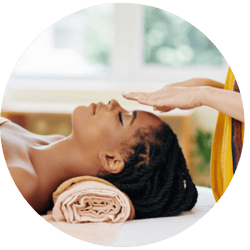
Energy medicine involves manipulating the body's energy to allow itself to heal. Reiki is perhaps the most popular modality at the moment. According to the Washington Post, more than 60 US hospitals have adopted it as part of their patient services. Reiki involves a practitioner holding hands over (but not touching) someone's body to manipulate their energy and alleviate pain.

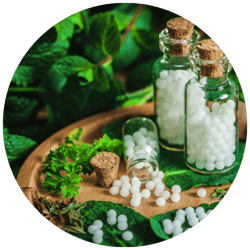
Homeopathic medicine is based on the belief that "like cures like." In homeopathy, a tiny amount of a substance in alcohol or sugar pill form can help speed up the body's ability to heal itself. Having been developed in Germany in the late eighteenth century, homeopathic medicine is more common in Europe than in the US.
Alternative Medicine Conclusion
This is just the tip of the iceberg. All these alternative medicines have many subtypes themselves — and of course an array of practitioners with their own strengths and insights. Some are rooted in thousands of years of tradition. Each one has many people who swear by its effectiveness, whether alone or in concert with traditional medical approaches, in helping their physical, mental, emotional, and spiritual health.
While it's up to you to do your own research, we at Sofia Health know this can be overwhelming. We are here to help you find the best individual practitioners for you. Get in touch with a practitioner to start building your personal health team. And of course, always consult your physician for medical advice before seeking additional care.



